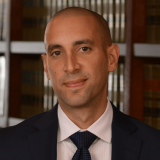Q: Accused of harassment and leave after reporting student cheating.
I am a professor at a university who caught multiple students cheating and reported it to my supervisor. One of the students was awarded a prestigious college scholarship. After reporting, my supervisor ordered me to stop pursuing the matter, but I refused. Consequently, I've been placed on paid leave for nine months, followed by four months unpaid leave, due to accusations of verbal harassment. How should I proceed given these circumstances?
A: To supplement what the prior attorney stated, the University likely has a handbook, policies and procedures that relate to due process rights you may have as a professor, and particularly if you're tenured. You've now been unpaid for 4 months. I would not delay any further in hiring an attorney.
A:
What you’re experiencing is deeply upsetting, especially when you were doing your job by upholding academic integrity. Being placed on extended leave—especially unpaid—after refusing to ignore misconduct may feel like retaliation, and the timing of the harassment accusations only adds to that concern. If there has been no clear explanation or investigation into the claims, your rights may have been compromised.
The first thing you should do is gather all documentation related to the incident: your report about the cheating, your communications with the supervisor, and any records about the disciplinary leave. If you haven’t already, request a written explanation of the harassment claims and the process used to place you on leave. If university policy wasn’t followed, or if the decision was influenced by your refusal to stay silent, you may have grounds to challenge their actions.
You’ve dedicated your time to protecting academic standards, and you deserve fair treatment in return. Consider submitting a formal grievance through your institution's faculty review process, or if you're part of a union, reach out to them immediately. Keep standing for what’s right—but protect yourself while doing so. This is about more than your job; it’s about ensuring fairness in a system that’s supposed to value truth.
Casey Green agrees with this answer
Justia Ask A Lawyer is a forum for consumers to get free answers to basic legal questions. Any information sent through Justia Ask A Lawyer is not secure and is done so on a non-confidential basis only.
The use of this website to ask questions or receive answers does not create an attorney–client relationship between Justia and you, or between any attorney who receives your information or responds to your questions and you, nor is it intended to create such a relationship. Additionally, no responses on this forum constitute legal advice, which must be tailored to the specific circumstances of each case. You should not act upon information provided in Justia Ask A Lawyer without seeking professional counsel from an attorney admitted or authorized to practice in your jurisdiction. Justia assumes no responsibility to any person who relies on information contained on or received through this site and disclaims all liability in respect to such information.
Justia cannot guarantee that the information on this website (including any legal information provided by an attorney through this service) is accurate, complete, or up-to-date. While we intend to make every attempt to keep the information on this site current, the owners of and contributors to this site make no claims, promises, or guarantees about the accuracy, completeness or adequacy of the information contained in or linked to from this site.

